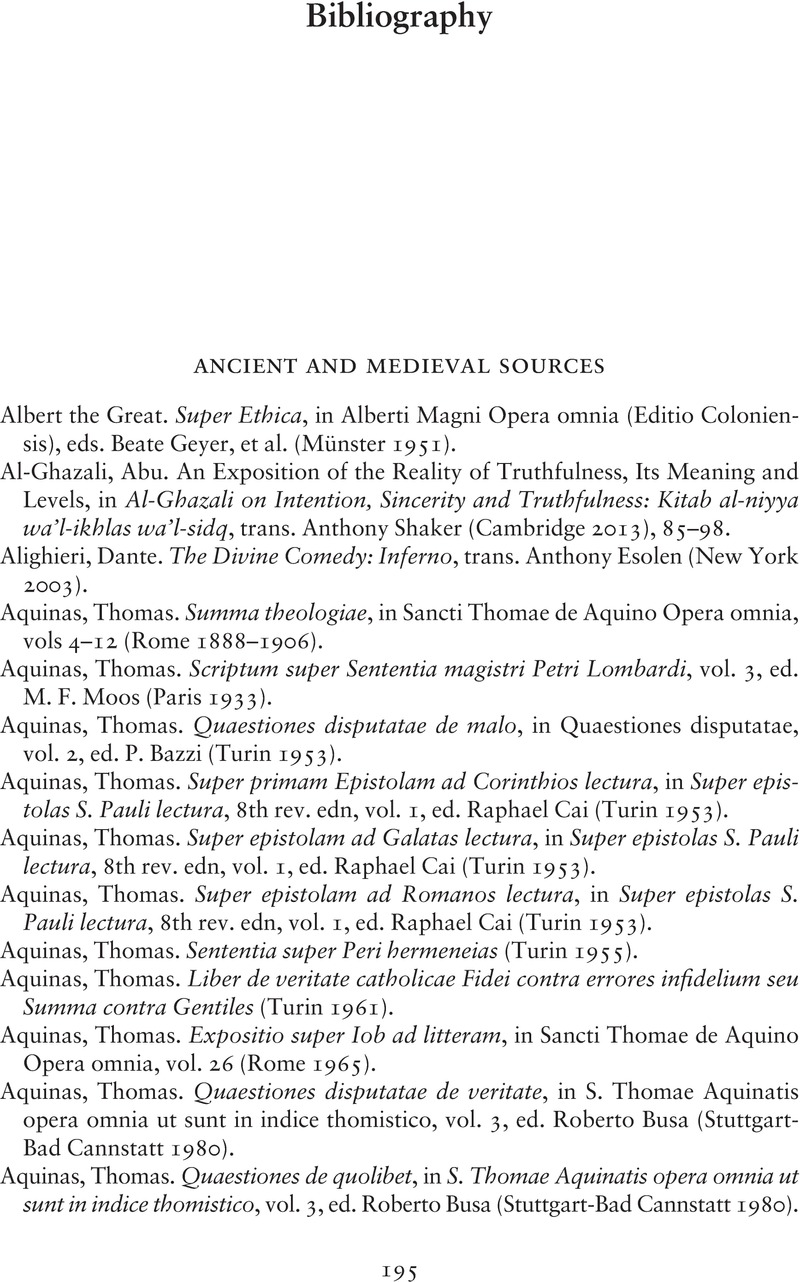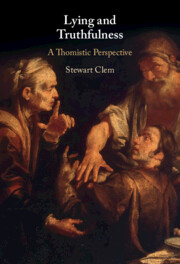Book contents
- Lying and Truthfulness
- Advance Praise for Lying and Truthfulness
- Lying and Truthfulness
- Copyright page
- Contents
- Acknowledgments
- Abbreviations and Translations
- Introduction
- 1 Lying and Contemporary Christian Ethics
- 2 The Ambiguous Legacy of the Eighth Commandment
- 3 Aquinas on the Sins of Speech
- 4 Aquinas on the Virtue of Veracitas
- 5 Lying, Asserting, and Evading
- 6 A Thomistic Framework for the Ethics of Lying and Truthfulness
- 7 A Thomistic Theory of Bullshit
- Conclusion
- Bibliography
- Index
- References
Bibliography
Published online by Cambridge University Press: 22 December 2022
- Lying and Truthfulness
- Advance Praise for Lying and Truthfulness
- Lying and Truthfulness
- Copyright page
- Contents
- Acknowledgments
- Abbreviations and Translations
- Introduction
- 1 Lying and Contemporary Christian Ethics
- 2 The Ambiguous Legacy of the Eighth Commandment
- 3 Aquinas on the Sins of Speech
- 4 Aquinas on the Virtue of Veracitas
- 5 Lying, Asserting, and Evading
- 6 A Thomistic Framework for the Ethics of Lying and Truthfulness
- 7 A Thomistic Theory of Bullshit
- Conclusion
- Bibliography
- Index
- References
Summary

Information
- Type
- Chapter
- Information
- Lying and TruthfulnessA Thomistic Perspective, pp. 195 - 208Publisher: Cambridge University PressPrint publication year: 2023
